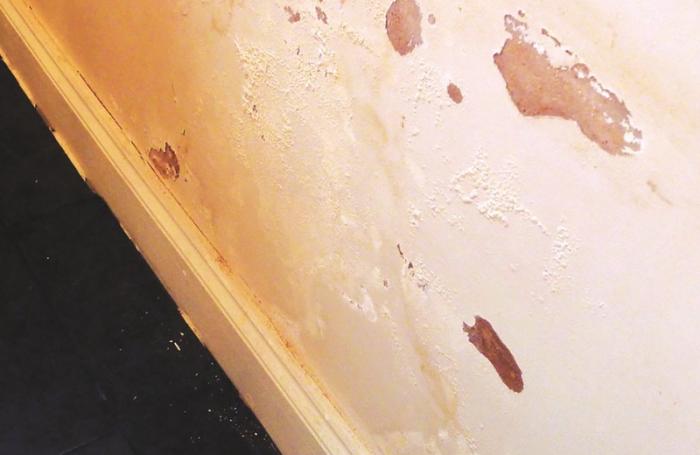Property Inspector: Preventing mold growth in your home

PHUKET: Phuket seems to be the mold capital of the world. We all battle the mold. It surrounds us 24 hours a day in the form of spores in the air and those that have settled onto every surface inside a home.
These spores are time bombs waiting to go off. In almost all instances, they already have two of three of the necessary ingredients to grow and thrive. The temperature inside most homes is almost always sufficient to support mold growth. The surfaces that the mold spores rest upon are usually a source of food for them. Mold will thrive on drywall paper, wood, some paints, fabrics, dust and so on. Soaps and other body-care products that often create a film inside tubs and showers are a smorgasbord for mold.
Mold can also easily grow inside a cold refrigerator. Certain molds thrive on the natural oils found in some deck sealers. That is why it’s best to use synthetic resin deck sealers that do not support mold growth. You name it, a mold will eat it. Did you know that trees and bushes produce a fine mist of sugar spray at certain times of the year? Outdoor molds thrive on this food. This is one reason your deck, patio or other outdoor furniture gets covered with mold.
Water is the third ingredient that triggers the mold spore time bombs. Surfaces that become wet from plumbing leaks, roof leaks, condensation and pet urine can sprout mold growth in a few days.
If the surfaces stay wet for extended periods of time, the mold can grow at an astounding rate.
Relative humidity levels of 50 per cent or more can supply enough moisture in the air that condensation can occur at temperatures close to the actual surface temperature of the object. Forget about stopping mold spores from getting into your home. It’s virtually impossible. But, be warned: common molds can cause health problems, so you need to deal with it quickly.
The key to stopping or halting mold is to cut off its supply of water. Vent dryers outdoors. Install high-quality fans that remove water vapor from baths and kitchens. Make sure all fans are vented to the outside. Many homes I inspect have no fan or windows that open in the bathroom or shower area. The few that have fans vent them into the attic space. Keep the shower door or curtain open when not taking a shower. Get as much water down the drain as soon as possible. Do whatever is possible to keep bathrooms dry.
In Phuket, it’s important to have good ventilation in the shower and the rest of the bathroom. Fix plumbing and roof leaks immediately. You can stop your mold growth by lowering the relative humidity in your home by running the air conditioner, keeping fans going or making sure your new home has plenty of air flow.
Cleaning mold is fairly simple. A solution of four parts water and one part chlorine bleach can be used to remove mold from tiles, concrete, grout and other surfaces that are not harmed by the harsh chlorine.
Fabrics, painted walls, wood and clothing can be cleaned using non-toxic oxygen bleach.
Mark Dietrich is a professional inspector and property builder with a master’s degree in building engineering. He came to Phuket after working for 25 years in the custom home and inspecting industry in the USA, and has been working in Thailand for more than 11 years. Visit www.certifiedphuketrealestate.com, email him at propertyinspectorthailand@gmail.com or call 085-809 8755
— Mark Dietrich
Latest Thailand News
Follow The Thaiger on Google News:


























